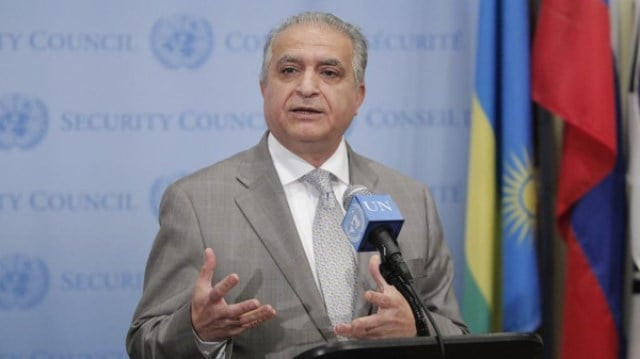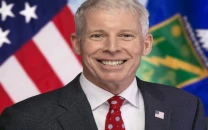Iraq UN ambassador accuses IS of harvesting organs
Mohammad al-Hakim says bodies with missing kidneys and surgical incisions have been unearthed

PHOTO: UNITED NATIONS
The ambassador stated that bodies with missing kidneys and surgical incisions had been unearthed in shallow graves over the past few weeks.
“We have bodies. Come and examine them,” he told reporters adding that “it is clear they are missing certain parts.”
He further added that dozens of doctors had been "executed" in Mosul because apparently they had refused to participate in organ harvesting.
Meanwhile, the outgoing UN Envoy to Iraq Nikolay Mladenov noted increasing reports that IS was using organ harvesting, saying “it’s very clear that the tactics IS is using expand by the day.”
“Especially worrying is the increasing number of reports of revenge attacks committed particularly against members of the Sunni community in areas liberated from [IS] control,” he added.
The Pentagon stated this month that the IS is no longer relying on oil as its main source of revenue to fund its terrorist activity.
“We know that oil revenue is no longer the lead source of their [IS’] income in dollars,” Pentagon spokesperson Rear Admiral John Kirby told reporters during a press briefing.
IS’ loss of income is attributed to its losses on the battlefield as the group has “lost literally hundreds and hundreds of vehicles that they can’t replace,” Kirby said adding that “they’ve got to steal whatever they want to get, and there’s a finite number.”
IS is instead depending on “a lot of donations” as one of the main sources of income. “They also have a significant black market program going on,” Kirby concluded.



















COMMENTS
Comments are moderated and generally will be posted if they are on-topic and not abusive.
For more information, please see our Comments FAQ